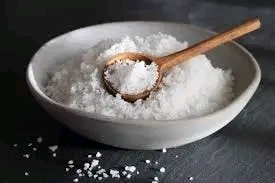Taking Salt Substitutes may Lower Risks for Heart Diseases, Stroke.
In the world of seasoning and flavor enhancement, salt has long held the throne. However, this seemingly innocuous ingredient carries a hidden danger to cardiovascular health.
Nutritionists and heart specialists are raising alarms over the high sodium intake associated with regular table salt, linking it to increased blood pressure, heart disease, stroke, and other non-communicable diseases.
The solution, as suggested by these experts, lies in the switch to potassium salt substitutes. Regular salt, or sodium chloride, contributes to the expansion of extracellular fluid volume, leading to a rise in blood pressure. This condition, over time, can escalate into life-threatening ailments such as strokes, heart failure, heart attacks, and kidney disease.
Potassium chloride, a tasty alternative to traditional table salt, offers a beacon of hope. By replacing sodium chloride with potassium chloride, we can significantly decrease dietary salt intake from the global average of 9-12 grams per day to the recommended level of less than 5 grams per day. This change, according to professionals, could drastically reduce blood pressure levels and mitigate the risk of cardiovascular diseases, potentially averting over 2.5 million deaths annually from heart attacks and strokes.
The World Health Organization (WHO) recognizes potassium salt substitutes as vital alternatives in the fight against cardiovascular disease. The agency notes that these substitutes, increasingly considered by national health authorities and public health organizations, could play a significant role in lowering blood pressure.
Olusola Malomo, a Registered Dietitian Nutritionist, emphasizes the importance of dietary salt but warns against its excessive consumption. High blood pressure, a consequence of high salt intake, has been linked to numerous health issues, including heart disease, stroke, and kidney failure. Potassium salt substitutes not only offer a seasoning alternative but also carry several health benefits.
Potassium is essential for nerve response, muscle contraction (including the heart), nutrient transport into cells, and waste removal. Despite its salty flavor, potassium chloride does not activate the same taste cells as sodium, which may lead to a different aftertaste. However, its health benefits far outweigh this minor inconvenience.
Malomo further notes that potassium salt is less processed than table salt, retaining trace minerals that add flavor and color. Sea salt, available in fine grains or crystals, is often touted as a healthier alternative to table salt.
Dr. Akinsanya Olusegun-Joseph, a Consultant Cardiologist, emphasizes the need for moderation in salt consumption. The body requires a small amount of salt for optimal health, but excessive intake can lead to water retention, increased blood pressure, and strain on the cardiovascular system. Potassium salt, by dilating blood vessels and reducing blood pressure, offers a safer alternative..
Research, such as the study led by Clare Farrand titled ‘Potential use of salt substitutes to reduce blood pressure,’ supports the shift towards potassium-based salt substitutes. Higher potassium intakes are linked to decreased blood pressure, independent of sodium intake. The study advocates for a reduction in sodium use in food manufacturing and a move towards potassium-based alternatives.
